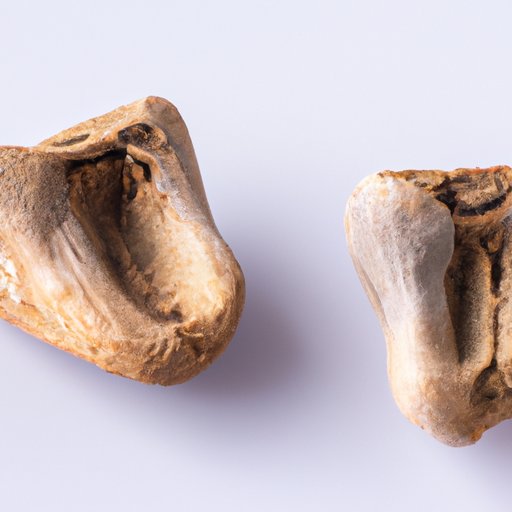
Introduction
A cracked or fractured tooth can cause severe pain and discomfort, which can disrupt your daily routine and lower the quality of your life. A crack can be caused by a variety of factors, such as eating hard foods, grinding your teeth, or having a blow to the mouth.
In this article, we will explore natural remedies for pain relief and long-term healing of a cracked tooth. We will cover topics such as temporary pain relief, foods to avoid, dental hygiene practices, herbal remedies, hydrogen peroxide rinse, and tooth-strengthening actions.
Natural Remedies for Temporary Pain Relief
If you have a cracked tooth, it is essential to visit a dentist to get professional treatment, but in the meantime, natural remedies can provide temporary relief from pain and discomfort.
Cold Compress: Applying a cold compress to the affected area can help reduce swelling and numb the pain temporarily. Wrap an ice pack in a towel and apply it to your cheek for 15-20 minutes at a time.
Clove Oil: Applying clove oil to the affected tooth can provide temporary relief from pain. Clove oil contains eugenol, which has natural anesthetic properties. Soak a cotton swab in clove oil and apply it to the affected tooth.
Over-the-counter pain medication: Nonsteroidal anti-inflammatory drugs (NSAIDs) can help to relieve pain and reduce inflammation. Common options include ibuprofen and naproxen.
Foods to Avoid
When you have a cracked tooth, certain foods can make the pain worse and cause additional damage. Avoid hard or crunchy foods, such as hard candies, nuts, and seeds, as well as chewy or sticky foods, such as taffy and caramel. Avoid eating ice, as it can cause further damage to the tooth.
Instead, opt for soft foods that are easy to chew and do not require crunching. This can include soups, stews, smoothies, and yogurts.
Dental Hygiene Practices
Maintaining good dental hygiene is essential for preventing further damage to the cracked tooth and promoting healing. Here are some tips to follow:
Brushing: Brush your teeth twice a day using a soft-bristled brush. Avoid brushing too hard or using a hard-bristled brush as this can cause further damage to the cracked tooth.
Flossing: Floss your teeth daily to remove trapped food particles and prevent the development of cavities.
Mouthwash: Rinse your mouth with an antiseptic mouthwash to kill bacteria that can cause an infection.
Herbal Remedies for Long-Term Healing
Herbs and plants can be used to promote long-term dental healing.
Aloe Vera: Aloe vera contains antioxidants and anti-inflammatory properties that can reduce inflammation and soothe pain. Apply aloe vera gel to the affected tooth three to four times a day.
Turmeric: Turmeric contains curcumin, which has anti-inflammatory properties that can reduce swelling and pain. Apply a paste made from turmeric and water to the affected tooth to help promote healing.
Hydrogen Peroxide Rinse
Hydrogen peroxide can help to disinfect the affected area and promote healing. Mix three percent hydrogen peroxide with equal parts water and swish the solution around your mouth for 30 seconds before spitting it out. Do not swallow the solution.
Strengthening the Tooth
There are actions you can take to strengthen the tooth and prevent further damage over time.
Calcium-rich foods: Incorporating calcium-rich foods, such as dairy products, leafy greens, and fortified cereals, into your diet can strengthen your teeth and prevent further damage.
Mouth guards: Wearing a mouth guard when you sleep can help to protect your teeth from grinding and prevent further damage to the cracked tooth.
Conclusion
While it is essential to seek professional dental care for a cracked tooth, natural remedies can provide temporary pain relief and promote long-term healing. Avoid hard, crunchy, or chewy foods, maintain proper dental hygiene practices, and incorporate herbal remedies and tooth-strengthening actions into your routine. By doing these things, you can relieve pain and discomfort, promote healing, and prevent further damage to your tooth.





